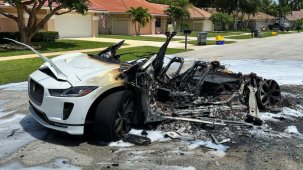There are (at least) a couple reasons, none of which are perfect. The main one is electrocution risk is lower. Beyond that, you get into issues with thinking of power-limited systems and diminishing returns on additional precautions.
That isn't the incentive. If you have ever been in a telecom central office battery room, or comparable facility for a large data center where you might have a battery room with (10) 10,000A 48VDC battery systems, or (4) 480VDC strings with 240 300-pound flooded lead acid jars each. When they started looking into alternative chemistries code authorities were reasonably concerned.
Then suddenly they become viable for homes! The same batteries that were causing cars to spontaneously combust! The Horror! Something Must Be Done!! LFP was originally going to be treated differently than NMC Li-Ion, but that gets too complicated to address new chemistries and evolving threats.
I would love to see NFPA's statistics on residential battery fires that justify the regulation, but ultimately it is hard to say they shouldn't have done anything.



